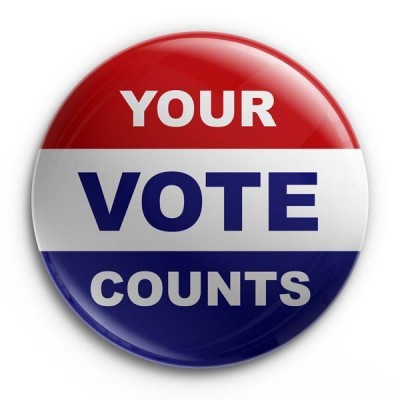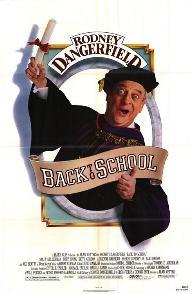Bryce Moore's Blog, page 150
June 8, 2017
Please Vote to Support Our Schools
 I wrote this on a school supporter Facebook group two days ago, but I wanted it to go out to a bigger group of people, so I’m putting it on my blog as well. Yes, it’s a local issue, but this applies to anyone anywhere. The school budget vote is THIS COMING TUESDAY. There’s so much to be depressed about in the world. Each day, we see reports about everything from global warming to terrorist attacks. It can be easy to feel disheartened and powerless. There’s nothing we can do to affect such big issues, right?
I wrote this on a school supporter Facebook group two days ago, but I wanted it to go out to a bigger group of people, so I’m putting it on my blog as well. Yes, it’s a local issue, but this applies to anyone anywhere. The school budget vote is THIS COMING TUESDAY. There’s so much to be depressed about in the world. Each day, we see reports about everything from global warming to terrorist attacks. It can be easy to feel disheartened and powerless. There’s nothing we can do to affect such big issues, right?
I firmly believe that the best solution to the world’s problems is education. A well-informed populace knows how to tell the difference between propaganda and truth. Knows how to educate themselves on the issues before a vote. Education is light, and the more the world has of it, the brighter the future will be.
And luckily, this is an area where we can have a big impact. Because here in Maine, education starts with the community. We band together to fund the futures of our children. Each year, school boards set budgets. Each year for the past few years, these budgets have been hotly contested. Last year, the first budget that went to a vote was rejected by 137 votes. The second budget that passed squeaked by with a difference of 37 votes.
What did losing that first vote cost our students? A World Language teacher in the middle school. Ed Tech positions. A reduction in the contingency fund account. (That last one seems like it shouldn’t have much of an impact, but it does. Year after year, the school budget gets frozen halfway through the year, because new special education students have moved into the district. The school is required by law to make certain accommodations for those students, but there isn’t enough money in the contingency fund to cover it. The result is that all other budgets are frozen to ensure there’s enough to fulfill the school’s legal obligations. Contingency funds matter!)
There are 693 people in this group. I don’t know how many of us voted last year. I’d hope it was 100% of registered voters. But if not, please don’t make that mistake again. This is a situation where each and every vote really matters. And if you voted last year, reach out to friends and family in the district. Sit down with them. Talk about the importance of the budget and the value of their vote. If each of us were to persuade just one more person to vote this year than voted last year, I’m confident this budget would sail through with flying colors.
People will hear that our school board spends money frivolously. That this budget is loaded with fat. Those claims are just not true. We spend less than the average amount spent per student in our state, even with the increases to the budget this year. Our school board has set a fair budget. One that does its best to balance the needs of our students with the costs to the community.
I will be voting yes on Tuesday, and I encourage all of you to not just do the same, but shout it from the rooftops. Make sure everyone knows the day to vote. Carpool. Call friends to remind them. Be that annoying person on Facebook who won’t shut up about an issue for a week or so.
This is an issue where some annoyance is more than deserved.
June 7, 2017
Point of View: Memory Thief Chapter Ten
Welcome to another chapter annotation, where I discuss some of the behind the scenes work that went into writing THE MEMORY THIEF. As always, this assumes you’ve read the book already. Up this week is Chapter Ten, where Benji first sees memory bottles, but not before he is overcome by rage at school and on the bus.
This is a scene that I’d pictured early on in the drafting process, and it stayed more or less true to the way I wrote it the first time. I wanted memories to alter who you were. It’s a concept I’ve always believed, and I wanted it to come out through the story. (Related to this, I also believe our memories of a single event can be different due to the way we each perceive that event individually. This isn’t something that really fits with the world of the Memory Thief, where memories are basically recordings of what we experience. Then again, it might also be an area I could explore more.)
One tricky thing to pull off in this chapter was to show what’s going on with Benji in a way that makes sense and doesn’t alienate the reader. A first person point of view brings a lot of things to the table. It lets you get inside the narrator’s head and get to know him in a way that’s much more difficult with third person. But on the other hand, you can’t just tell the reader what’s up, and that can get confusing.
The example I always think of when I discuss this is Great Gatsby, where the narrator is extremely unreliable. He’s in love with a girl in the story, and so he presents her as being far more charming and wonderful than she is. Then at the end of the book, he sees her for what she is, and her character seems to shift. Not because she’s changed, but because the narrator’s perception of her has changed.
In this chapter, with Benji having taken in so many angry memories, it warps him. I wanted to have some of that bleed through, but this is Middle Grade, and so I needed to be careful with how I did it. Part of me wanted to have it go on longer, but in the end I just thought that would be too much. I don’t want to confuse my readers, so I thought if I kept it tight within a single chapter, it would still make sense to everyone. It was fun writing an angry Benji scene, though. One where he had no patience for anyone or anything. My characters aren’t typically like that.
Maybe in the end I thought it was a bigger deal than it was. No one’s commented that they were confused by it in the slightest, and no one’s commented on how much they liked the scene. You never know.
June 6, 2017
How Up to Date Do I Want to Be?

I’ll admit it: there are some days that I just wish I didn’t know as much about what’s going on in the world. These days, it seems like there’s something new to be shocked and dismayed at every day on a global, national, and sometimes even local level. Don’t I have enough to worry about without troubling myself by finding out about new things to worry about?
It doesn’t help that some things are presented as being more noteworthy than perhaps they ought to be. Celebrity deaths, for example. I’m sad to see actors and musicians I like pass away, but most of the time, the people passing away are people whose careers are long since over, for all practical purposes. Maybe I take a minute to be sad they’re gone, but if I haven’t heard or watched anything they’ve put out recently, what real impact does that have on me? (That sentence sounds super cynical. I’m not trying to be. Just trying to talk about this openly.)
2016 got a reputation for how many celebrity deaths it had, and so that became a news story, which became something else to be upset about. In addition to terror attacks, an orange buffoon becoming our president, natural disasters, global warming, and more.
I get that the news prints the things people will read, and that often means printing the upsetting things. More than that, they’re motivated to make you want to care about it, which means the more you read, the more opportunity you have to be upset.
So the question becomes: why bother? Why check the news faithfully?
The benefits seems like they could be immediate. For one thing, less stress. Less to be worried about each day. Less time taken up reading about the news, talking about the news, and thinking about the news. Yay for that, right?
But I can’t help but think I would lose something by not knowing. That ignorance is a trait many people in power would prefer their populace had. More than that, I feel like the ability to ignore the news is a privilege, one I can afford because of my color, gender, socio-economic status, race, orientation, and family. I might be able to be fine by ignoring the rest of the world, but am I hurting other people by doing that? I think in the end I would be.
Perhaps the solution is to pick my battles more carefully. To choose to consciously ignore some news while staying up to date in other areas. To ask myself if something is important enough for me to dwell on or do more research.
What are your thoughts?
June 4, 2017
Moving Time!
 Sorry for the absence Friday. I was off on a moving adventure over the weekend. I just got back yesterday, and my back and forearms are kind of on the painful side, but nothing was broken (on me, at least. A few pieces of furniture can’t quite say the same . . .), so all is well. I learned a few valuable lessons over the course of the move:
Sorry for the absence Friday. I was off on a moving adventure over the weekend. I just got back yesterday, and my back and forearms are kind of on the painful side, but nothing was broken (on me, at least. A few pieces of furniture can’t quite say the same . . .), so all is well. I learned a few valuable lessons over the course of the move:
A 26 foot truck is very big. As in, very big. But at the same time, it’s kind of like a reverse TARDIS. Once you start filling the thing, it begins to feel smaller on the inside than it is on the outside. The more things you put into it, the smaller it feels. Ultimately, you wish it were bigger so it would be easier to fit all the stuff.
But then you drive the 26 foot truck (or act as navigator) and you wish it were smaller again. This is also true when you have to fill up the tank, which costs enough money that you have to put your credit card in twice, because it stops at $100 per gas transaction.
Back braces are a wonderful thing. I bought one just for this experience, and I’m very glad I did. My lower back doesn’t hurt at all, and my upper back mainly just creaks and groans like the rest of my muscles. For the record, I bought this one, and I really liked it.
Driver side seats in a truck are much nicer than passenger side seats. Though you have to drive the truck to be able to sit there, so I think it’s kind of a wash.
Moving things into a truck takes forever. Moving stuff out of the truck is much easier. Finding a place to put all the stuff when you move it out is a whole different story.
Moving trucks are very tall. Tall enough that you have to watch out for branches that you never would think about twice in a normal situation.
People in small cars don’t really care about how long it might take you to stop when you’re in a big truck. They zoom around you without a care in the world. I don’t think we ran over any of the small cars, but a few of those roads were pretty bumpy, so we might have clunked over one or two and just thought it was a pot hole. (Seriously. I’m going to be much more careful around big trucks from now on, until I forget this lesson a few months from now at least.)
Three people to load a 26 foot truck is not enough. Even when you have a fourth person for a couple of hours.
After moving for three straight days and traveling through 10 states to do it, you’re going to be very tired. But you’re not going to be able to sleep well.
Moving doesn’t burn as many calories as you’d think, so justifying that chocolate bar? Probably not a great idea.
You will be very, very glad to be home and done with it.
At least we didn’t have to go over any covered bridges.
“That’s not a bridge. It’s termites holding hands!”
June 1, 2017
Why Is Everyone So Unreasonable?
 Another school board meeting last night to set the budget for the coming school year. Another contentious, un-fun 2.5 hours of my life gone. Another chance for me to reflect on why we all do the things we do. Why we support the viewpoints we support. As I listened to both sides make their arguments over the course of the evening, it was clear some on both sides have completely dismissed the opposing viewpoint as shortsighted, wrong, or naive.
Another school board meeting last night to set the budget for the coming school year. Another contentious, un-fun 2.5 hours of my life gone. Another chance for me to reflect on why we all do the things we do. Why we support the viewpoints we support. As I listened to both sides make their arguments over the course of the evening, it was clear some on both sides have completely dismissed the opposing viewpoint as shortsighted, wrong, or naive.
The things is, I believe each person views themselves as reasonable. Rational people who look at the situation and then come to the best possible choice. They’ve weighed the evidence and come to a conclusion. When this is about things that don’t matter a whole lot, none of us really care. If you think prefer to read or would rather watch television, whatever. Even (gasp!) if you like the Yankees instead of the Red Sox. It just doesn’t really matter. But when those decisions affect other people, things change. Other people have their own ideas. They’ve looked at the evidence and come to a different conclusion.
We’re never all going to agree on what the best course of action is. We all come from different backgrounds, and we have different experiences and values that have led us to make the choices we make. So I’m not trying to argue that disagreement of any sort is bad. But what I do think is that dismissing a differing point of view out of hand is dangerous and leads to toxic environments, especially when we begin to label people who don’t agree with us.
Of course, it’s easier to go through life coming up with reasons for why other people don’t agree with you. It excuses you from having to ever take a good hard look at your own beliefs to see if they’re off base. It would be easy for me, as a school budget supporter, to look at the people trying to vote the budget down each year and dismiss them as shortsighted. As people who are putting their own pocketbooks in front of the best interests of our students. As “stingy.” To do so would be a mistake. They are people who firmly believe school budgets have spiraled out of control, and that the districts are spending money frivolously. I might disagree, but I also think such a viewpoint is important, as it helps to keep those budgets in check. It constantly reminds us to scrutinize how we’re spending money and to be 100% sure an expense is necessary.
Likewise, I heard and read numerous remarks from those “no” voters about the people who vote yes. It seems some have come up with two narratives that explain why the school budget is approved each year, and why people vote in favor of it:
The budget meetings are packed by the schools. Teachers and employees of the schools show up and vote their own salaries through. Never mind the fact that the only people who can vote are registered tax payers of the area.
The people who vote for the budget are suckers, taken in by a school board and administration that’s solely interested in raising money for the school and willfully ignoring the voice of the people.
Those labels are just as wrong as the other labels would be.
In the end, what frustrates me the most about the situation is that the No side (some of them, at least) seem unwilling to really engage in a conversation about the budget. They are starting from a position that the school board is throwing money around casually. That the budget that’s been presented each year is wasteful, and that they have the obvious answers to fix it. I approach the budget each year with the idea that the school board has already deliberated for hours and hours over the issues at hand. That they’re fully cognizant of the needs of the schools and the desire to keep costs down, and that the budget they’ve put forward is the best compromise they can get. We’ve elected these people to do exactly that. If we don’t like what they come up with, sure, we can debate it. But we should look into voting for new representatives as well.
That baseline assumption makes a big difference in attitude. When I was in Jerusalem, I used to haggle a fair bit. It’s assumed that’s what you’ll do. The first price a vendor asked you, you’d come back with a price a quarter of that. And through the haggling process, you end up with something both can agree on. Haggling doesn’t work in American stores. Not most of them, at least. The assumption is that the store has already decided on a fair price. A price that lets it make a profit but lets you afford it. You can try to haggle, but you’ll get nowhere.
In these budget debates, it feels to me like the school board has taken an American approach to price setting, and the no voters come and assume it’s more of a Jerusalem approach. That there’s plenty of waste and fat to cut. I just don’t see it, though I’m willing to listen to see where it can be found. A few items came up last night. Social workers were debated for a while. In the end, I voted to leave the social worker positions in. Not because I’m a robot and vote for anything the school board tells me to, but because I feel like the schools and community argued well for why those positions are necessary. Vital.
Anyway. No idea how the actual referendum vote will go, but it likely will be contentious again. I’d love to have a face to face meeting with ardent no voters. One where disagreements can be ironed out and compromises made. But I’ve seen little evidence that they’re honestly willing to do that, and that they’d change any views at all if such a meeting were to take place.
Maybe I’m putting too many labels on them.
May 31, 2017
Riverdancing for Fun and Profit
 Back when Denisa and I were dating, we went to see a Broadway show. I’m pretty sure it was Kiss Me Kate, but it’s been a while, so I might have that wrong. In any case, on the way into New York, she told me all about how her ex-boyfriend in London had taken her to Riverdance back in the day. How awesome it was. How much she loved it. And somehow, that stuck with me. I don’t think she meant anything by it other than to mention another cool show she’d been to, but in my head, I wasn’t sure if any of the shows I was taking her to were ever going to live up to Riverdance. Denisa’s big time into dancing, even though I (as a non-dancer) am fairly disappointing in that regard.
Back when Denisa and I were dating, we went to see a Broadway show. I’m pretty sure it was Kiss Me Kate, but it’s been a while, so I might have that wrong. In any case, on the way into New York, she told me all about how her ex-boyfriend in London had taken her to Riverdance back in the day. How awesome it was. How much she loved it. And somehow, that stuck with me. I don’t think she meant anything by it other than to mention another cool show she’d been to, but in my head, I wasn’t sure if any of the shows I was taking her to were ever going to live up to Riverdance. Denisa’s big time into dancing, even though I (as a non-dancer) am fairly disappointing in that regard.
It didn’t help that it came up in passing in the intervening years. She’d see a dance number on Broadway or television and talk about that one time she went to Riverdance. She’d hear a song and it would remind her of Riverdance. And each time, it was reminded me that her ex-boyfriend had one upped me before I even had a chance to get in the game.
So this year, when I saw the Riverdance anniversary tour was coming to Bangor, I saw my chance. I bought the tickets and surprised her with them for her birthday. Months later, we finally went to the show last night.
It was our first time trekking out to Bangor just to see a show. We went to dinner first at The Fiddlehead, which was fantastic food and I highly recommend to anyone looking for a good restaurant in Bangor. Not cheap, but not overly expensive, either.
The show was at the Cross Center, which wasn’t necessarily designed with dance performances in mind. I had bought tickets close to the front, thinking they would be the best, but the angle was bad from the floor, so you couldn’t see the dancing as well. We ended up moving a bit further away at intermission so that Denisa had a better view of the footwork.
I’m not a huge dance aficionado by any stretch, but there were some very enjoyable numbers in there. I was surprised by how much it focused on music as well as dance. They had a fiddle player and a soprano sax who were both very good, and a drummer who was excellent. The dances focused on traditional Irish for the first half, and then added in some more modern elements and other cultures in the second half. There was an extended “dance off” number where Irish immigrants competed with American to see who could tap dance the best. Kind of like Gangs of New York, Riverdance style. That was the highpoint of the evening, I’d say. Really impressive tap dancing. I have no idea how those toes and heels can go so fast.
There was a Russian routine that was also lots of fun. High leaps and twirls and acrobatics mixed into the dancing.
All in all, it was a very successful experiment. I think Denisa and I would like to go to quite a few more shows out and about. We’d tried to go to a touring Broadway number in the winter, but a snow storm got in the way. Still, I see more of this in our future. Lots of fun, and great to get out for the evening.
Maybe now I can stop mentally comparing every show I go to with Denisa to Riverdance . . .
May 30, 2017
The Perils of the Black Fly
 When we moved to Maine, we were warned: watch out for the black flies!
When we moved to Maine, we were warned: watch out for the black flies!
This seemed like kind of a silly warning, honestly. Sort of like “Watch out for the green grass!” or “Beware the evils of the blue sky!” Flies are black. I’m not going to spend my life always paranoid of any ol’ black fly.
“No,” people would say. “These are different. These are tiny little flies that will bite you. They’re small.”
“You mean like biting gnats?” I’d ask.
“Nope. Black flies.”
Whatever. It was August. There were some gnats around, but nothing seemed too bad. Denisa and I dismissed it as just a bit of local flavor. Crazy Mainers and their fear of black flies.
Then May came, and we were introduced to “Black Fly Season.” Now, having been through almost 10 years here, I know better. These flies are very specific. They just go by a very generic name (probably to lull the unsuspecting into a false sense of safety). Just look at the Wikipedia page. They suck so much blood from Canadian cattle that the cows die. If that’s not serious, I don’t know what is.
Honestly, these days I’m not that worried about blood loss. It’s true that when a black fly bites you, you feel it. And when you swat them, they explode in blood. But all of that pales in comparison to the fact that some people are quite allergic to them. Not “bee sting” allergic. Black flies don’t kill you (I don’t think), but their bites swell up and itch, depending on the person. For me, they itch for days after and are a real annoyance. For my family? Tomas got bit in his ear canal five years ago or so. (His ear canal!) And his bites swell a bunch and hurt.
It was not a good few days for Tomas.
Most black flies die off by around mid July, and then life returns to normal. But if you go outside from later April until then . . . watch out.
I like to tell myself they’re acceptable because they keep people away who don’t really love the area. But if there were one thing I could change about my home . . . that might be it.
May 26, 2017
Stress Coping Techniques
 Here’s the situation: you’re in a meeting or middle of a slew of work. You can’t step away from your desk or the meeting. You have to keep going, even though you’re super stressed. What do you do to try and control it?
Here’s the situation: you’re in a meeting or middle of a slew of work. You can’t step away from your desk or the meeting. You have to keep going, even though you’re super stressed. What do you do to try and control it?
My personal approach dates back to the single semester I took martial arts at BYU. At the end of each class, the teacher would have us kneel and meditate, focusing on our breathing. He’d tell us to inhale slowly and imagine that we were inhaling everything good around us. Then we’d exhale slowly and picture ourselves breathing out anything bad that was inside us.
I’ve used this ever since as my go-to panic button to help myself when things are going south and I can’t go for a walk or take a few minutes to play a video game or read a book. (Sometimes even when I can. In the middle of a flight when I feel like I’m just going to lose it, for example.)
Prayer works too, but I find to calm down and lower my heart rate and suppress that icky butterfly feeling in my stomach, that breathing technique works the best.
However, as I’ve been slogging my way through meetings and emails and work this week, trying to catch up with everything I missed (and prep for another trip next week, a second the week after that, and a third the week after that), I’ve found myself using it a bit more than I’d like. And I wondered if, perhaps, there might be better approaches out there. Not that mine doesn’t work, but you never know unless you ask.
Any suggestions?
May 25, 2017
House of Cards in Retrospect
 I’ve been making may way through the Netflix version of House of Cards. Really enjoying the show, although they certainly could have toned down some scenes and still had the same effect. But what’s really been interesting to me is how in a pre-Trump world, the show tried to depict ruthlessness and power mongering, and how I just don’t think it has the same impact in a post-Trump world.
I’ve been making may way through the Netflix version of House of Cards. Really enjoying the show, although they certainly could have toned down some scenes and still had the same effect. But what’s really been interesting to me is how in a pre-Trump world, the show tried to depict ruthlessness and power mongering, and how I just don’t think it has the same impact in a post-Trump world.
In other words, the show keeps trying to have politicians push the edge. Be as mean as you’d could imagine. As spiteful as possible. (It’s the antithesis in many ways of The West Wing.) And yet the things they have them do have almost always been trumped by Trump at this point.
Giving away cabinet seats to people who are grossly unqualified? Check. Outright nepotism? Let me count the ways. It’s almost like Trump got into politics because he watched House of Cards and thought that kind of life looked fun,
I know I don’t post too much about Trump these days. I feel like he’s doing a horrendous enough job all on his own to make me pointing it out regularly feel kind of redundant. That said, I do check Fox News now and then, and I’m continually surprised by how little they seem to report about the silly things he’s doing. This makes me wonder if I’m falling victim to media bias, but then I go back and check what he tweeted or said or promoted, and I’m reminded that no, I’m not. Still, I can see how Trump supporters continue to support him. The people they turn to and trust for unbiased opinions are giving them nothing but. When all you hear is that “anything negative you hear is a media smear job,” then it becomes much easier to feel good about things.
Just look that those folks in North Korea.
Anyway. No time for much more of a post today. Busy busy busy. Keep fighting the good fight, folks. Catch you tomorrow.
May 24, 2017
Family Relations: Memory Thief Chapter Nine
Welcome to another behind-the-scenes look at The Memory Thief. We’re up to chapter nine, and it’s another chapter that actually didn’t change a whole lot between the first draft and the final version. I thought about just skipping over the chapter because of this, but I wanted to talk a bit about why I think the chapter didn’t change.
For those of you who don’t feel like actually getting out the book and rereading the chapter, I’ll remind you: it’s where Benji steals his parents’ memories of the reasons for being mad at each other.
It’s interesting to me: when I started writing the book, I had no intent to explore family relations as a sub plot. It wasn’t like I started out thinking, “Benji is the son of parents who fight a lot.” I didn’t know who Benji was. Instead, I knew I wanted Benji to be at the fair and to go off on his own, where he’d eventually meet Louis. I needed a reason for him to want to go off by himself. The one that I ended up going with was that his parents were fighting, and he wanted to escape it.
I could have gone with many others, however. Maybe his parents were just the type of people who’d let him wander the fair on his own. Perhaps he got separated from his parents in the middle of a crowd. He could have been there with his friends as part of a group. Any one of those reasons would have been perfectly acceptable, but I went with arguing parents. Maybe it’s because it’s something I’d had experience with. I didn’t have a definite reason for doing it.
But because I chose that, it established a few things about Benji. First, he had parents who didn’t get along, and second, he disliked it enough that he wanted to escape it.
Once those items were set, then it only made sense that as soon as he had the ability to steal memories, he’d use it to try and “fix” his parents. There was no avoiding that choice, as an author. It’s a thread I just kept following to see where it ended. In a middle draft, Louis appeared in Benji’s Dad’s Memory Library, come to warn Benji against stealing those memories. But even with that warning, Benji still did it. At that point, I just knew that’s what Benji would do.
Characters define themselves by their actions and thoughts. Early on in a story, when we don’t know them, they’re able to do just about anything, and the audience won’t question it. They’re getting to know the character. But once that character is established, then the options grow more limited. You can force them to act a certain way, of course. As an author, you can write anything. But the audience won’t believe it unless you set it up properly. In the middle of To Kill a Mockingbird, Scout could suddenly go all Child’s Play on everyone, killing everyone in the scene. But people wouldn’t buy the change in her character.
This is one of the main reasons I end up ditching so many of my plot outlines about a third into the book. I made the outline before I really knew the character, and I’ll have had them make a big choice that they end up not wanting to make. At that point, I either need to go back and rewrite their character to make it work, or I need to have them change their decision. I typically have them change their decision. I know and like them by that point. Who am I to force them to do something they don’t want to do?
Anyway. I just found it interesting that one seemingly simple choice right at the beginning of a draft could end up having such big implications later on in the novel. The whole book ended up having family relations play a big part. In fact, because I’d started with that as the main conflict, I decided to end with that being the final conflict to get resolved. (More or less.) It helps bring closure to the story.
That’s it for this week. As always, thanks for reading!





